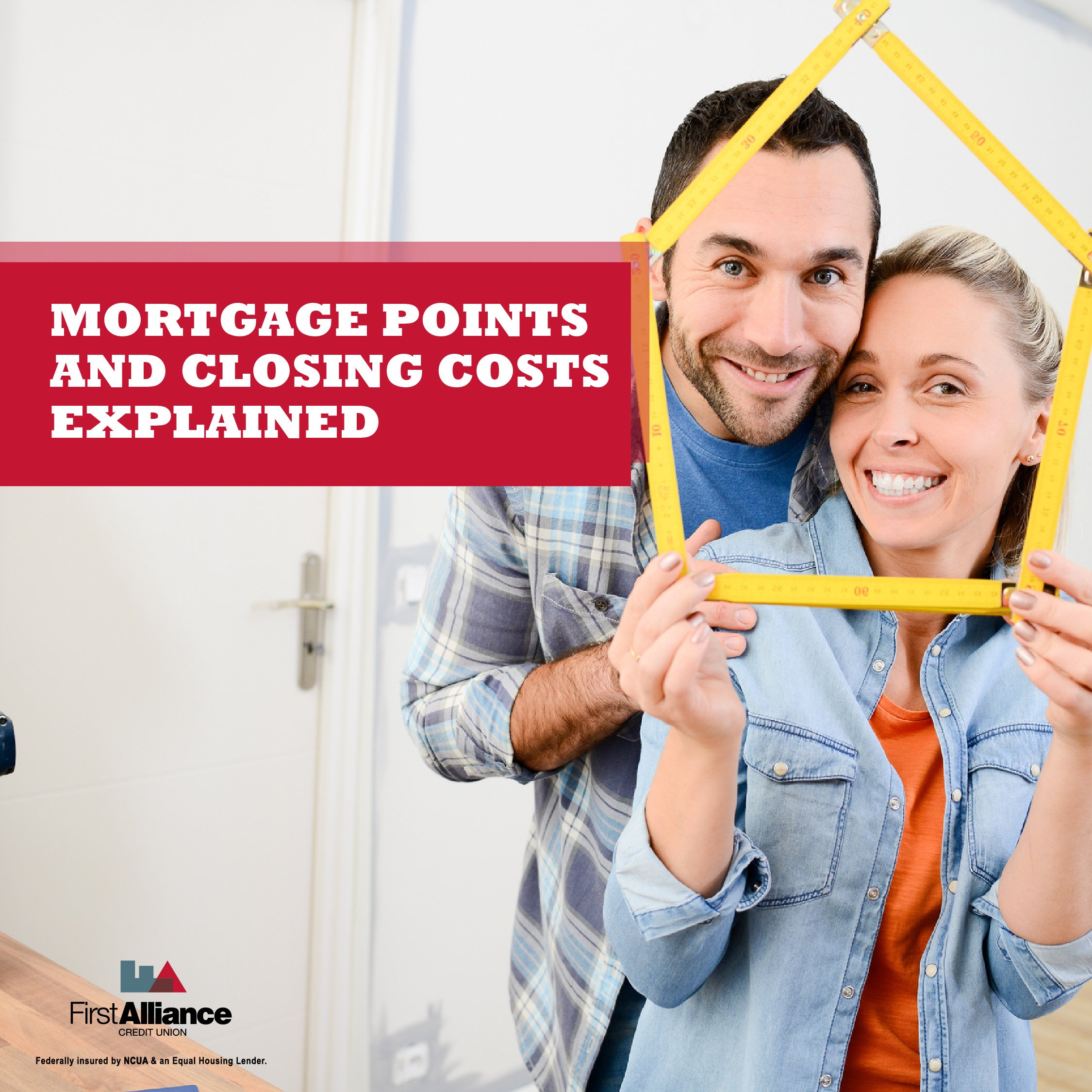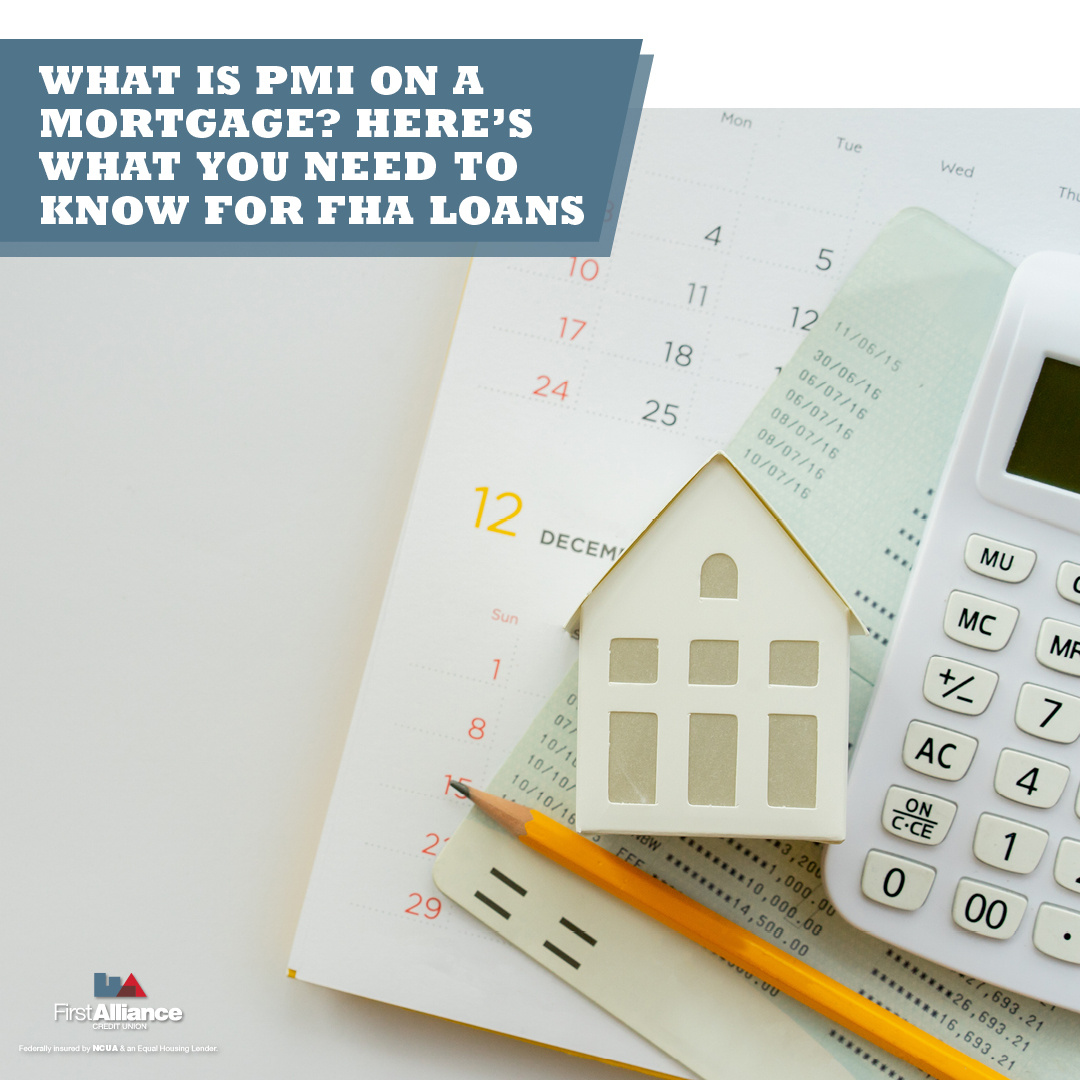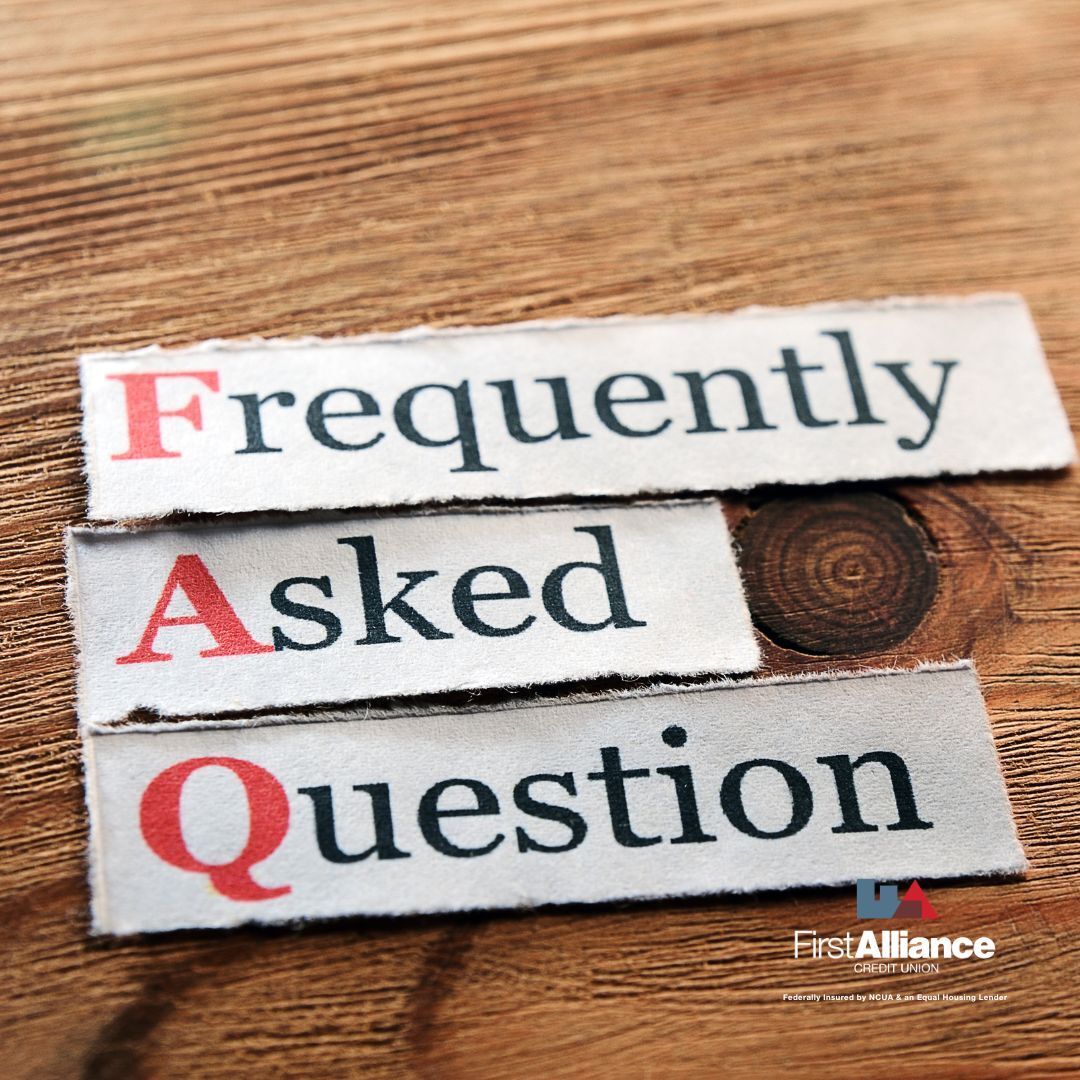What is PMI on a Mortgage? Here’s What You Need to Know for FHA Loans
If you're in the process of buying a home, you’ve likely come across the term Private Mortgage Insurance (PMI). It’s one of those extra costs that...
3 min read
![]() First Alliance Credit Union
:
Mar 19, 2019 6:52:00 AM
First Alliance Credit Union
:
Mar 19, 2019 6:52:00 AM

Buying a home is an exciting and significant milestone in anyone's life. However, as you delve into the process of securing a mortgage, you may encounter unfamiliar terms like "mortgage points" and "closing costs." These aspects play a crucial role in determining the overall expense of your home loan and can have a lasting impact on your financial future.
Fortunately, these two terms are not hard to understand. Once you know what "mortgage points" and "closing costs" mean, you'll be able to make more informed decisions during your homebuying journey. You might even save some money in the process.
Understanding "mortgage points" and "closing costs" will enable you to make better decisions throughout your homebuying process, potentially saving you money along the way.
A mortgage point is the amount equal to 1% of the mortgage loan amount. For example, let’s say that you take out a loan of $400,000, one point will be $4,000.
Closing costs are the expenses linked to finalizing a real estate transaction. These costs are covered by either the buyer or the seller.

Discount points are a type of pre-paid interest, and is given directly to the lender at closing for the reduction of the interest rate on your mortgage loan. So, the more points you pay, the lower the interest rate goes on the loan. You can pay up to 3 or 4 points, depending on how much you want to lower the rate.
An origination point is a fee that is charged by the lender to cover the processing of the loan. This fee is mostly a percentage of the loan amount rather than a fixed dollar amount.
This is dependent upon factors like how much money you have in your savings account for closing costs and how long you plan to stay in the house. If you are planning to stay in your home for some time, using points to reduce the interest rate may be a better approach. If you are looking for the lowest possible closing rate, then you should opt for a zero-point option on the loan program.
Paying discount points allows you to get a discount on the interest rate for the entire life of the fixed-rate mortgage. Therefore, the monthly payment is less so you are able to pay less in interest. To establish whether you should or shouldn’t pay for the points, you need to consider how long you are planning to keep the loan.

The fees that are associated with the closing of the real estate transaction are collectively known as the closing costs. These closing costs are paid by either the buyer or the seller.
Closing costs range widely depending on your location and the property that you purchase.
Closing costs can include the following:
Typically, about 3-5% of the purchase price of the home is paid as a closing fee. According to the law, lenders are under obligation to provide you with a Loan Estimate (LE) of the closing costs within three days of the loan application. Since these are only estimates, they can increase by as much as 10%, which could potentially add thousands of dollars to the final closing costs.
To avoid paying for closing costs, you can obtain a non-closing cost mortgage, where you are not required to pay any cost at closing. However, if a lender does offer you such an arrangement, then it will probably cost you in the long run. For example, the lender could charge you a higher interest rate on the loan, or the closing cost could be included in the total cost of the mortgage and you end up paying the interest on the closing costs. Alternatively, the buyer can negotiate with the seller as to who pays for these fees. In some cases, the seller pays 100% of the closing costs.
When buying a home, terms like "mortgage points" and "closing costs" can be kind of confusing, especially if you've never heard of them before. However, once you know the different types of mortgage points, how many points you'll need and what closing costs typically include you'll be more prepared when you finally make an offer on a house.
If you’re looking for a new home, become a member of First Alliance Credit Union today and get help from our expert team of real estate loan advisors. They can answer your questions, guide you through the mortgage application process and help you get a mortgage that works for you.

If you're in the process of buying a home, you’ve likely come across the term Private Mortgage Insurance (PMI). It’s one of those extra costs that...

When you sign for a mortgage, you’re getting a lot of new things. You’ll be living in a new house and opening a new chapter in your life.

Buying a home is an exciting process that comes with a lot of responsibilities. When applying for a mortgage, it helps to know some important facts...